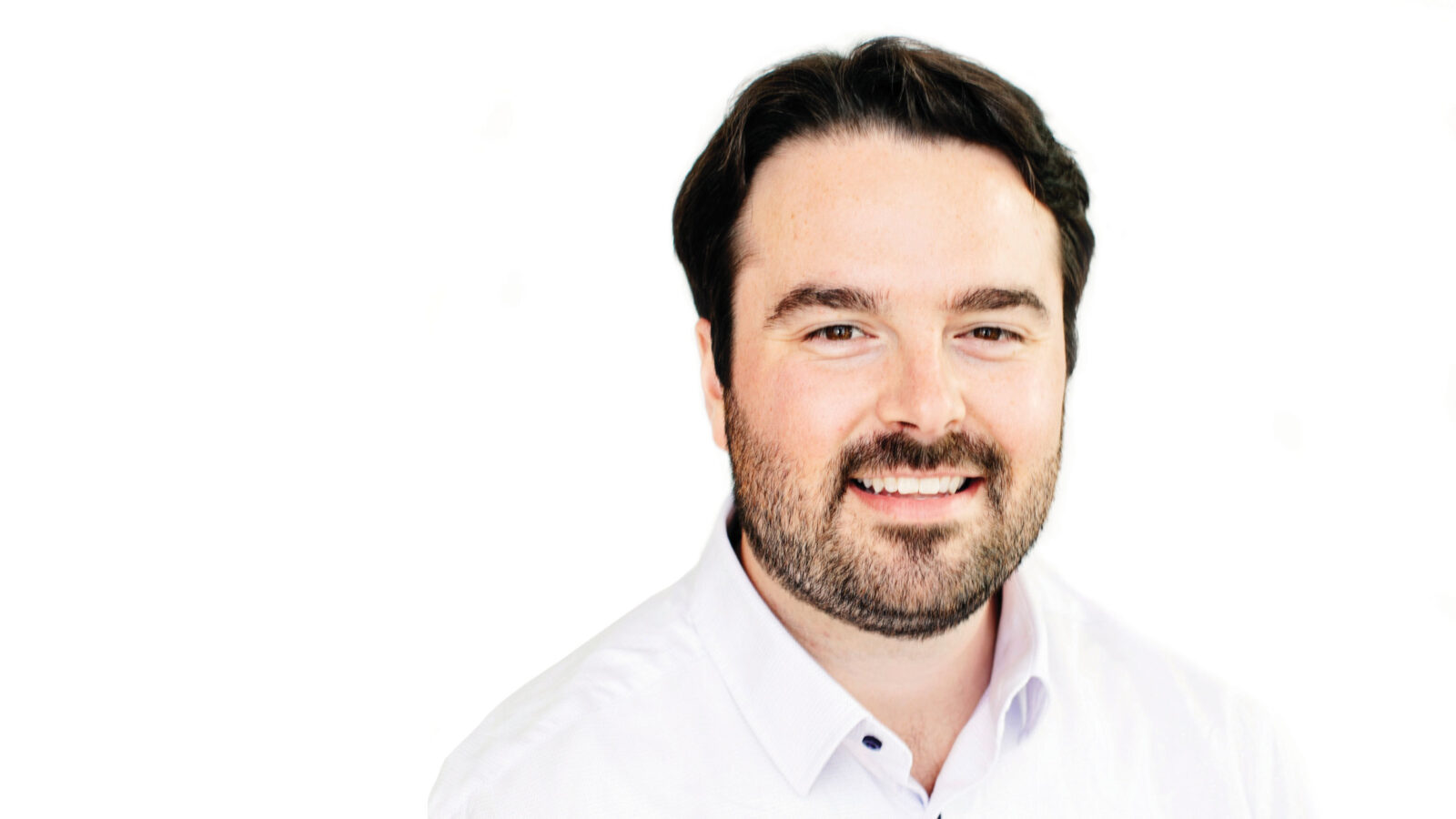How can we help people with autism build a meaningful and independent life? At Daivergent, a training platform and coaching service for the neurodiverse community, Cameron Dogan ’14 leverages both high technology and human interaction.
There’s a saying in the autism community: If you meet one person on the spectrum, you’ve met one person on the spectrum. Neurodiverse people, in other words, have such widely varying abilities and needs that generalizations are meaningless. And that presents a business challenge for Cameron Dogan ’14, Director of Operations at the New York-based start-up Daivergent, a for-profit training and growth platform for young people with autism. As he puts it: “How do we provide a very wide-scale service, while maintaining a personalized approach?”
The answer for Daivergent has been a combination of high technology and human interaction. The platform’s video conferencing allows Daivergent’s coaches to work face-to-face with clients on employment or life goals, with the weekly sessions paid for by government programs or through a monthly fee paid by the clients. The platform also provides proprietary online teaching tools and resources such as virtual clubs, where clients can share their interests in 3D printing, Legos, video gaming, and other topics. “We have people whose goals are to get a job and jump-start their career,” explains Dogan, who was hired by company co-founders Byran Dai and Rahul Mahida in 2018 after earning his engineering degree at Clemson. “And we also have people for whom just talking with somebody once a week is growth. It’s really about recognizing that growth means something different for everybody, and then we try to meet them where they’re at.”
The desire to find the right personal path happens to be a theme in Dogan’s own life. After a childhood in Rye, New York, he arrived at Williston for his sophomore year, the first in his family to attend an independent school, and was impressed by how “it was always OK to try different things,” whether sports (he played soccer, hockey, and briefly lacrosse), or art, or theater. While at Clemson, he interned for several months at corporate consultant Ernst and Young, and was offered a job after graduation. But then through a friend he happened to meet Dai and Mahida, who in 2017 had just launched their startup (both had family members with autism).
“I was given the chance to go to a very corporate job—which I probably would still be working at—but I took a little bit of risk and I turned that job down. Going to a boarding school like Williston gave me the confidence to say, ‘This is a once-in-a-lifetime thing. Let’s try this out.’ And the learning that I’ve gotten here has just been fantastic.”
Today, Dogan oversees Daivergent’s day-to-day operations, helping to manage the company’s 20 full-time employees and 50 coaches and trainers. As the point person for feedback from clients and their families, he hears many inspiring stories of resilience, but also disheartening accounts of a social-support system that too often fails disabled young people. One issue of particular concern is what Daivergent calls the “services cliff.” When young people with disabilities reach legal adulthood, they lose access to many government resources. “That’s why we focused on this transition age of 18 to 35,” notes Dogan. “To help people figure out what’s next after the services cliff.” It’s a vital question for both clients and their parents, he adds. “A lot of parents in this space, their biggest fear is what’s going to happen to my kid when I’m gone? That’s a really scary thing for them.”
As a venture-backed business, Daivergent’s mission is to offer help, but also to make money. “We’re trying to be the intersection where social good meets business sense,” Dogan explains. The company now has hundreds of clients around the country, and projects to have thousands by the end of next year.
For Dogan, joining the start-up has proven to be a risk worth taking. “I always like hearing when somebody does something for the first time, like getting a job or making a new meal,” he says. “But more interesting, to me, is when people say, ‘You know, he is just happier today.’ Or ‘She participates in conversations at dinner.’ That signals to me that our clients are gaining confidence and growing in those softer skills, which are harder to teach. Those are always really rewarding to hear about.”
Learn more about the work of Daivergent at daivergent.com
Williston memory: “Our We the People team went to the JFK School of Government and ended up coming in second. Then we spent a weekend in Washington, D.C., at George Mason University. It was honestly one of the most fun experiences in my life.”

